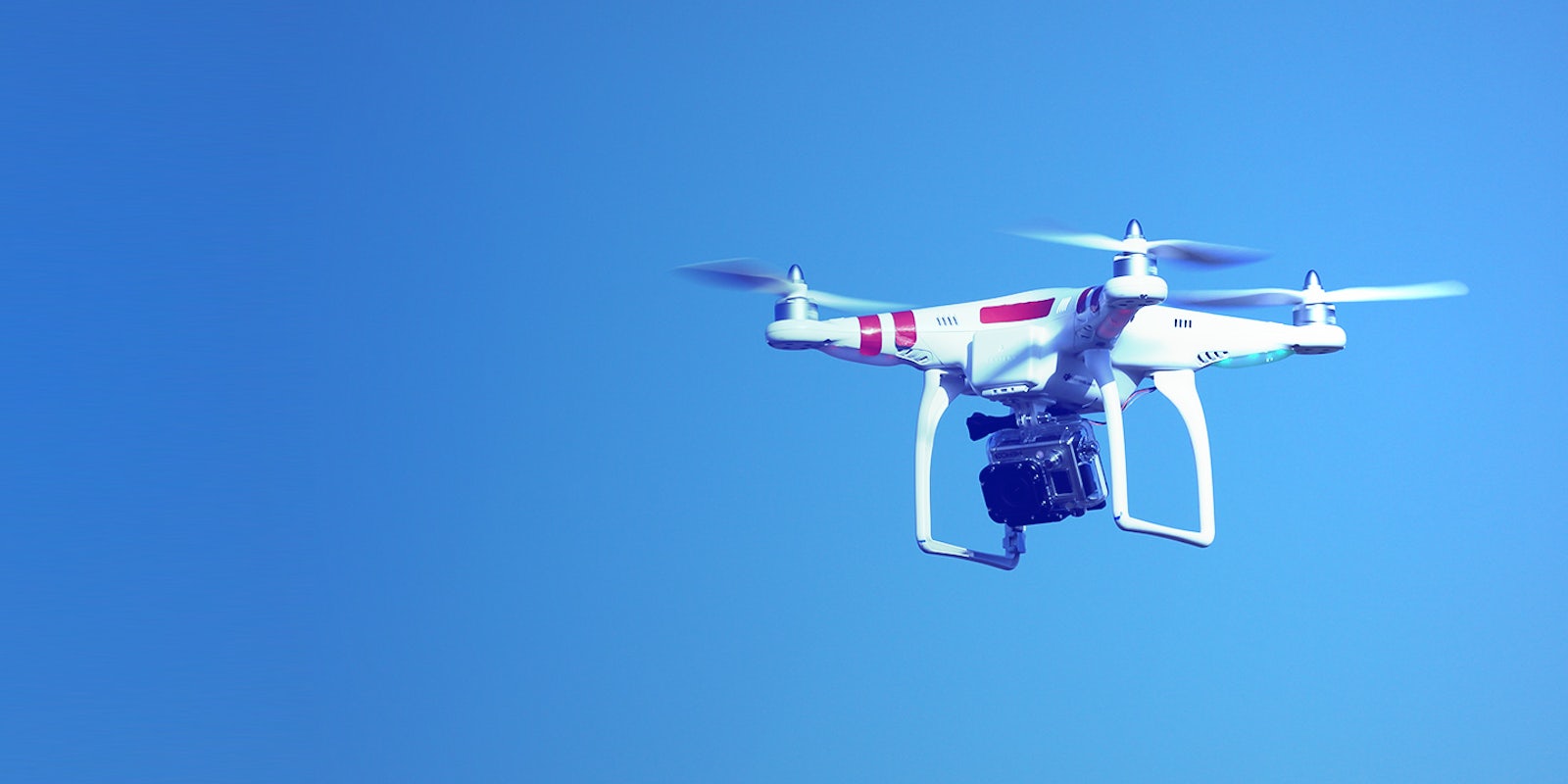A Kentucky judge ruled earlier this week that a man who shot down a drone flying over his property was acting within his rights.
William Meredith of Hillview, Kentucky, had insisted that the drone was spying on his 16-year old daughter, who was sunbathing in the backyard. Judge Rebecca Ward of the Bullitt District Court evidently agreed that Meredith had cause to fire at the UAV, because she dismissed charges of wanton endangerment and criminal mischief filed by the drone’s owner David Boggs.
Boggs claimed that he was using the done to take pictures of another house close Meredith’s. His $1,800 drone crashed into a nearby field after Meredith’s shots hit it.
“Well, I came out and it was down by the neighbor’s house, about 10 feet off the ground, looking under their canopy that they’ve got in their backyard…I went and got my shotgun and I said, ‘I’m not going to do anything unless it’s directly over my property,’” Meredith told local news station WDRB. “Within a minute or so, here it came. It was hovering over top of my property, and I shot it out of the sky.”
A central question in the case was the height at which Boggs’s drone was hovering above Meredith’s residence. Boggs offered flight data from the drone showing that it had flown nearly 200 feet above Meredith’s property.
“You will see now that we did not go below this altitude—we even went higher—nor did we hover over their house to look in,” Boggs told WDRB. “And for sure didn’t descend down to no 10 feet, or look under someone’s canopy, or at somebody’s daughter.”
In her decision, Judge Ward noted that multiple witnesses claimed to have seen the drone flying below the tree line. That, she said, indicated that Boggs’s drone use had been an invasion of Meredith’s privacy.
While there is no law against shooting drones out of the sky, the Federal Aviation Administration would prefer if people didn’t do so. “Shooting at aircraft poses a significant safety hazard,” an agency official told CNET. “An unmanned aircraft hit by gunfire could crash, causing damage to persons or property on the ground, or it could collide with other objects in the air.”
The Kentucky incident isn’t the first high-profile drone-shootdown case. A New Jersey man was arrested last year for riddling his neighbor’s drone with holes.
Drone laws vary considerably from state to state. A few days before the ruling in the Kentucky case, state Rep. Diane St. Onge introduced a bill to make “drone harassment” a misdemeanor in the state.
Sen. Rand Paul (R-Ky.), a 2016 presidential candidate, has also joined the fray, telling CNN that anyone who flies a drone over his home “better beware, because I’ve got a shotgun.”
Federal law is unclear on the rights of property owners versus drone operators, because there is no set altitude at which personal property gives way to the commons of the air.
The last time the U.S. Supreme Court directly addressed the question was in the 1948 case United States v. Causby, in which the court found that a North Carolina farmer had no legal right to stop the airplanes from a nearby airport from flying over his house and scaring his chickens. The planes, the Court ruled, were flying high enough over his property that he couldn’t claim dominion over activity in that airspace.
Drones fly far lower than 1940s aircraft, so the question of when they intrude on personal property is still open.
If you’d rather avoid pulling out your Beretta when you hear a buzzing overhead, you could sign up for No Fly Zone, a free service that works with drone manufacturers to register airspace where their drones cannot fly.
Photo via Don McCullough/flickr (CC BY 2.0) | Remix by Max Fleishman


